Suzuki Vitara vs Volvo XC90 - Differences and prices compared
Compare performance (129 HP vs 455 HP), boot space and price (23600 £ vs 69800 £ ) at a glance. Find out which car is the better choice for you – Suzuki Vitara or Volvo XC90?
Costs and Efficiency:
When it comes to price and running costs, the biggest differences usually appear. This is often where you see which car fits your budget better in the long run.
Suzuki Vitara has a significantly advantage in terms of price – it starts at 23600 £ , while the Volvo XC90 costs 69800 £ . That’s a price difference of around 46191 £.
Fuel consumption also shows a difference: Volvo XC90 manages with 3.50 L and is therefore clearly more efficient than the Suzuki Vitara with 5 L. The difference is about 1.50 L per 100 km.
Engine and Performance:
Power, torque and acceleration say a lot about how a car feels on the road. This is where you see which model delivers more driving dynamics.
When it comes to engine power, the Volvo XC90 has a clearly edge – offering 455 HP compared to 129 HP. That’s roughly 326 HP more horsepower.
In acceleration from 0 to 100 km/h, the Volvo XC90 is decisively quicker – completing the sprint in 5.40 s, while the Suzuki Vitara takes 9.50 s. That’s about 4.10 s faster.
In terms of top speed, the Suzuki Vitara performs hardly perceptible better – reaching 190 km/h, while the Volvo XC90 tops out at 180 km/h. The difference is around 10 km/h.
There’s also a difference in torque: Volvo XC90 pulls clearly stronger with 709 Nm compared to 235 Nm. That’s about 474 Nm difference.
Space and Everyday Use:
Whether family car or daily driver – which one offers more room, flexibility and comfort?
Seats: Volvo XC90 offers distinct more seating capacity – 7 vs 5.
In curb weight, Suzuki Vitara is clearly lighter – 1255 kg compared to 2080 kg. The difference is around 825 kg.
In terms of boot space, the Suzuki Vitara offers to a small extent more room – 375 L compared to 302 L. That’s a difference of about 73 L.
In maximum load capacity, the Volvo XC90 performs evident better – up to 1856 L, which is about 736 L more than the Suzuki Vitara.
When it comes to payload, Volvo XC90 clearly takes the win – 710 kg compared to 400 kg. That’s a difference of about 310 kg.
Who comes out on top?
Overall, the Volvo XC90 shows itself to be wins the duel decisively and secures the title of DriveDuel Champion.
It convinces with the more balanced overall package and proves to be the more versatile choice for everyday use.
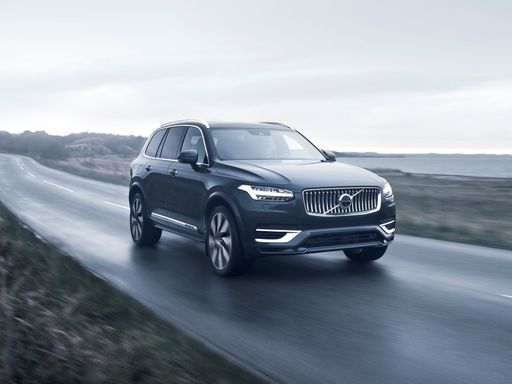
Volvo XC90
Costs and Consumption
View detailed analysis
Engine and Performance
View detailed analysis
Dimensions and Body
View detailed analysis
Suzuki Vitara
The Vitara is a city-smart SUV with a cheeky streak of off-road promise, perfect for drivers who want practicality without pretense. It’s honest, easy to live with and surprisingly likeable, a sensible companion for everyday adventures and weekend escapes.
details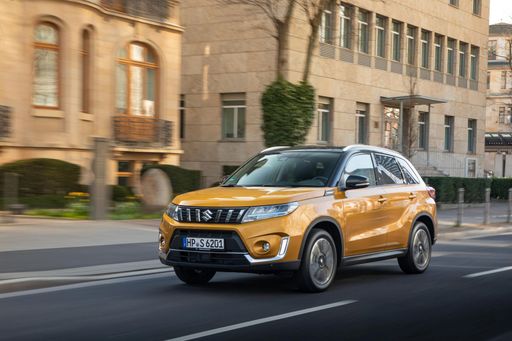
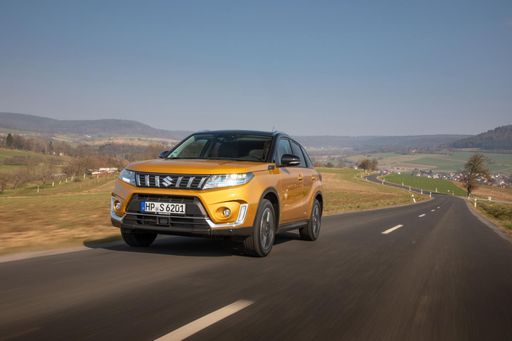
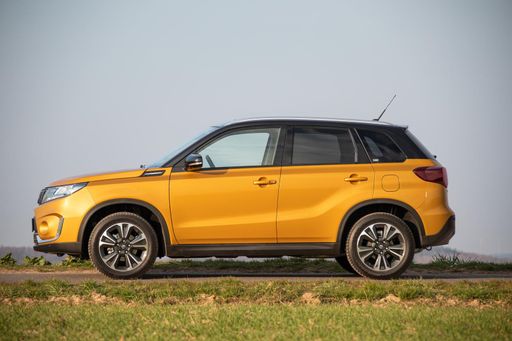
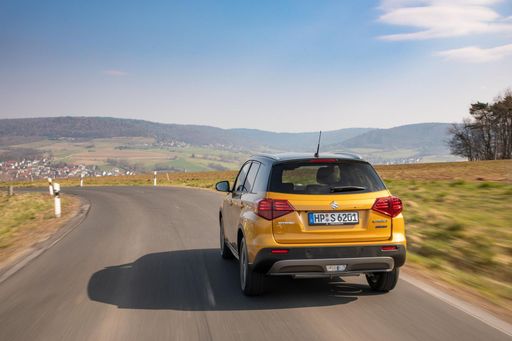
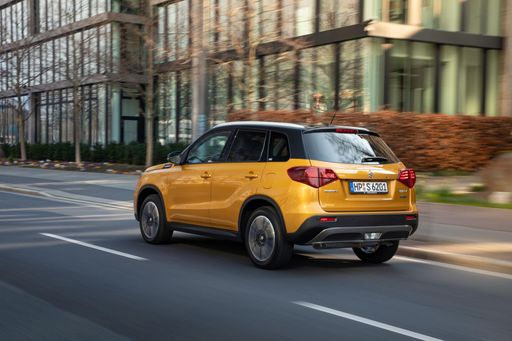
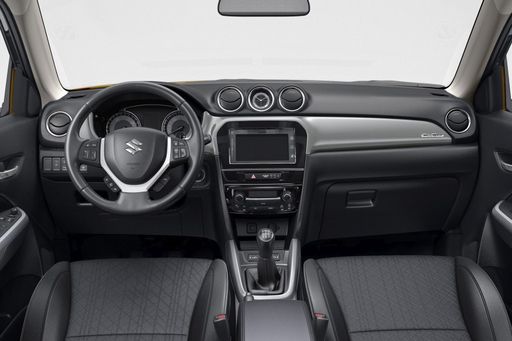
Volvo XC90
The Volvo XC90 is a serene Scandinavian SUV that mixes minimalist luxury with a composed, confidence-inspiring presence — ideal for buyers who want family practicality without sacrificing style. Inside it serves up a calm, well-crafted cabin and user-friendly tech that keeps long journeys pleasant and tantrums to a minimum, making the XC90 a smart, stylish pick for sensible drivers.
details
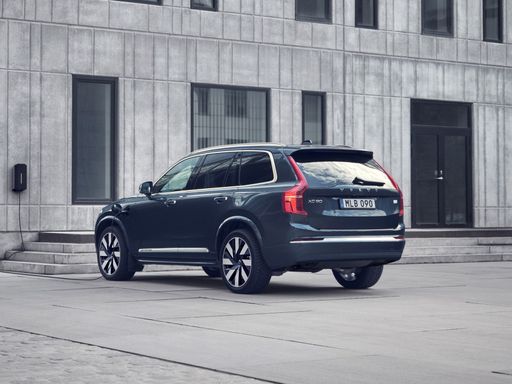

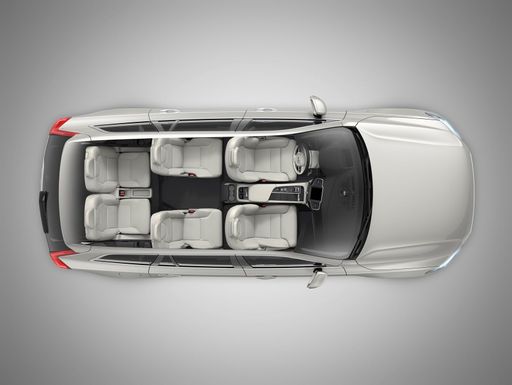
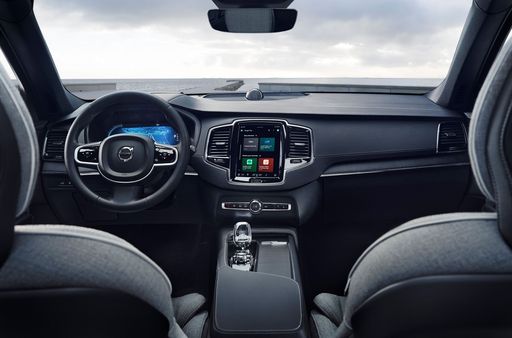
Costs and Consumption |
|
|---|---|
|
Price
23600 - 30900 £
|
Price
69800 - 84600 £
|
|
Consumption L/100km
5 - 5.9 L
|
Consumption L/100km
3.5 - 8.5 L
|
|
Consumption kWh/100km
-
|
Consumption kWh/100km
-
|
|
Electric Range
-
|
Electric Range
71 km
|
|
Battery Capacity
-
|
Battery Capacity
14.70 kWh
|
|
co2
113 - 138 g/km
|
co2
79 - 191 g/km
|
|
Fuel tank capacity
47 L
|
Fuel tank capacity
71 L
|
Dimensions and Body |
|
|---|---|
|
Body Type
SUV
|
Body Type
SUV
|
|
Seats
5
|
Seats
7
|
|
Doors
5
|
Doors
5
|
|
Curb weight
1255 - 1395 kg
|
Curb weight
2080 - 2297 kg
|
|
Trunk capacity
289 - 375 L
|
Trunk capacity
262 - 302 L
|
|
Length
4185 mm
|
Length
4953 mm
|
|
Width
1775 mm
|
Width
1923 mm
|
|
Height
1595 mm
|
Height
1771 mm
|
|
Max trunk capacity
1046 - 1120 L
|
Max trunk capacity
1816 - 1856 L
|
|
Payload
375 - 400 kg
|
Payload
653 - 710 kg
|
Engine and Performance |
|
|---|---|
|
Engine Type
Petrol MHEV, Full Hybrid
|
Engine Type
Petrol MHEV, Plugin Hybrid
|
|
Transmission
Manuel, Automatic
|
Transmission
Automatic
|
|
Transmission Detail
Manual Gearbox, Automated Manual, Automatic Gearbox
|
Transmission Detail
Automatic Gearbox
|
|
Drive Type
Front-Wheel Drive, All-Wheel Drive
|
Drive Type
All-Wheel Drive
|
|
Power HP
110 - 129 HP
|
Power HP
250 - 455 HP
|
|
Acceleration 0-100km/h
9.5 - 12.7 s
|
Acceleration 0-100km/h
5.4 - 7.7 s
|
|
Max Speed
180 - 190 km/h
|
Max Speed
180 km/h
|
|
Torque
235 Nm
|
Torque
360 - 709 Nm
|
|
Number of Cylinders
4
|
Number of Cylinders
4
|
|
Power kW
81 - 95 kW
|
Power kW
184 - 335 kW
|
|
Engine capacity
1373 - 1462 cm3
|
Engine capacity
1969 cm3
|
General |
|
|---|---|
|
Model Year
2024 - 2025
|
Model Year
2024 - 2025
|
|
CO2 Efficiency Class
D, C, E
|
CO2 Efficiency Class
G, B
|
|
Brand
Suzuki
|
Brand
Volvo
|
What drivetrain options does the Suzuki Vitara have?
Available configurations include Front-Wheel Drive or All-Wheel Drive.




